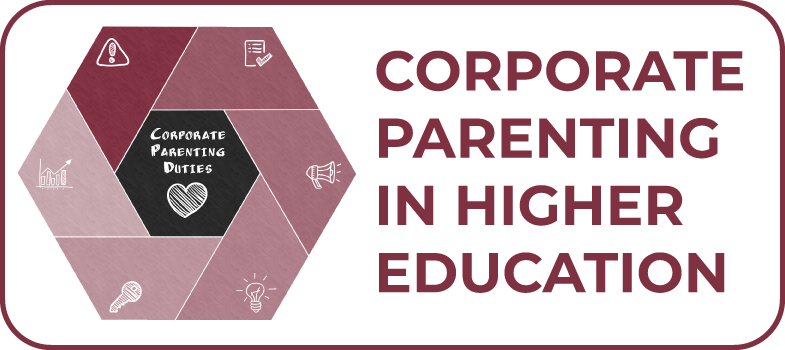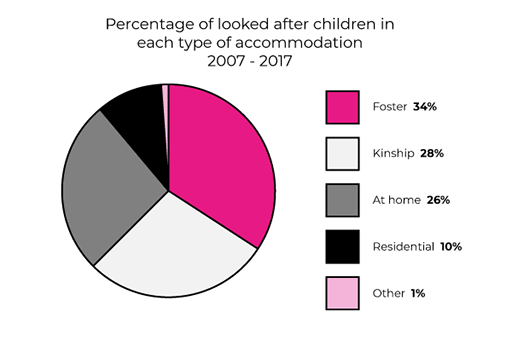Different types of care experience
- At home: living with parent(s) but with involvement from services
- Kinship: living with friends or relatives
- Foster: living with another family
- Residential: living in a children’s unit/house
- Other: a different community with prospective adopters.
Most looked after children fall into two categories:
- Looked after at home – where the child or young person has been through the Children's Hearings system and is subject to a Supervision Requirement (regular contact with social services) with no condition of residence.
- Looked after away from home – where the child or young person has either:
- Been through the Children’s Hearings system and is subject to a Supervision Requirement with a condition of residence
- Is subject to an order made or authorisation or warrant granted by virtue of chapter 2, 3 or 4 of Part 2 of the 1995 Act
- Is being provided with accommodation under Section 25 (a voluntary agreement)
- Is placed by a local authority which has made a permanence order under section 80 of the Adoption and Children Act 2007.
Supervision Order
Where a child is considered to be ‘at risk’, and it is not possible for public services to address that risk in cooperation with the child and/or their parents/carers, a Children’s Hearing can make a Compulsory Supervision Order (or an Interim Compulsory Supervision Order).There is a list of reasons (in law referred to as ‘grounds’) why a child may be considered ‘at risk’, and therefore referred to a Children’s Hearing.
The Children’s Hearings System is Scotland’s unique care and justice system for vulnerable children and young people. It operates a decision-making lay tribunal made up of members of the Children’s Panel. Their website [Tip: hold Ctrl and click a link to open it in a new tab. (Hide tip)] provides information about the System and the different types of orders and agreements that looked after children may be subject to.
Who are Care-Experienced people?

